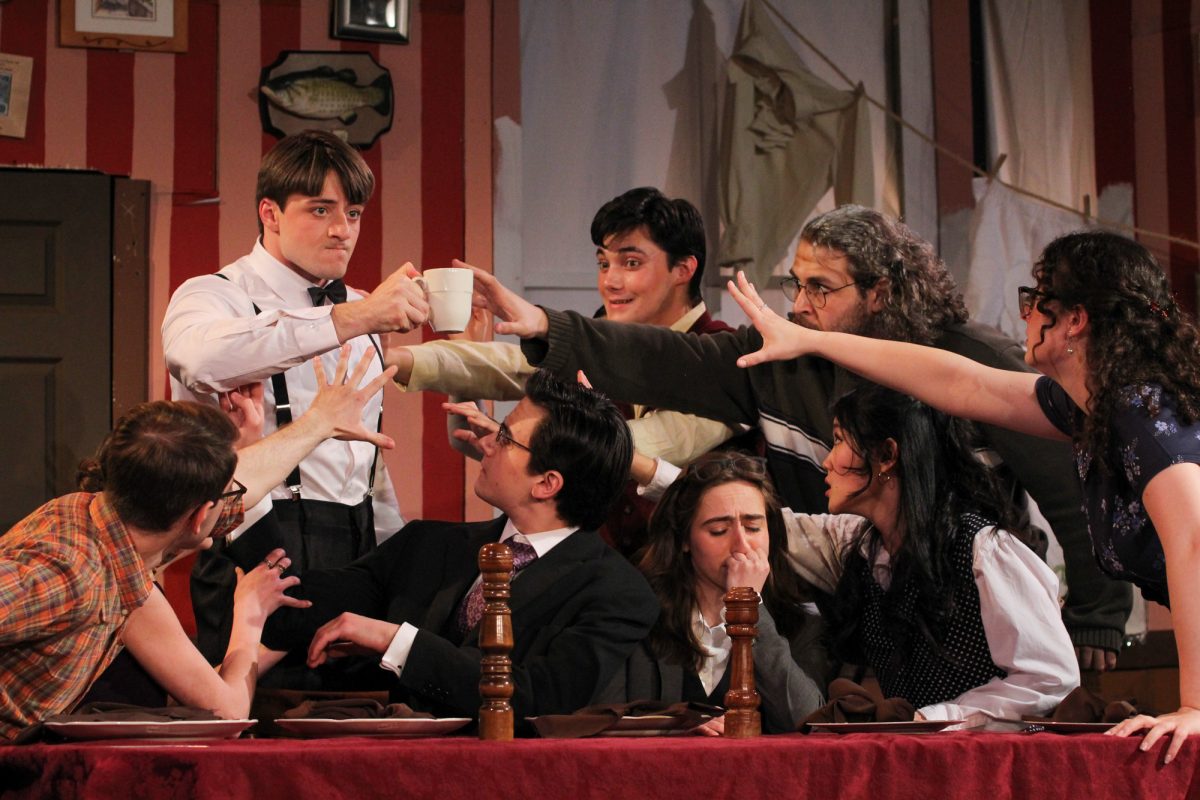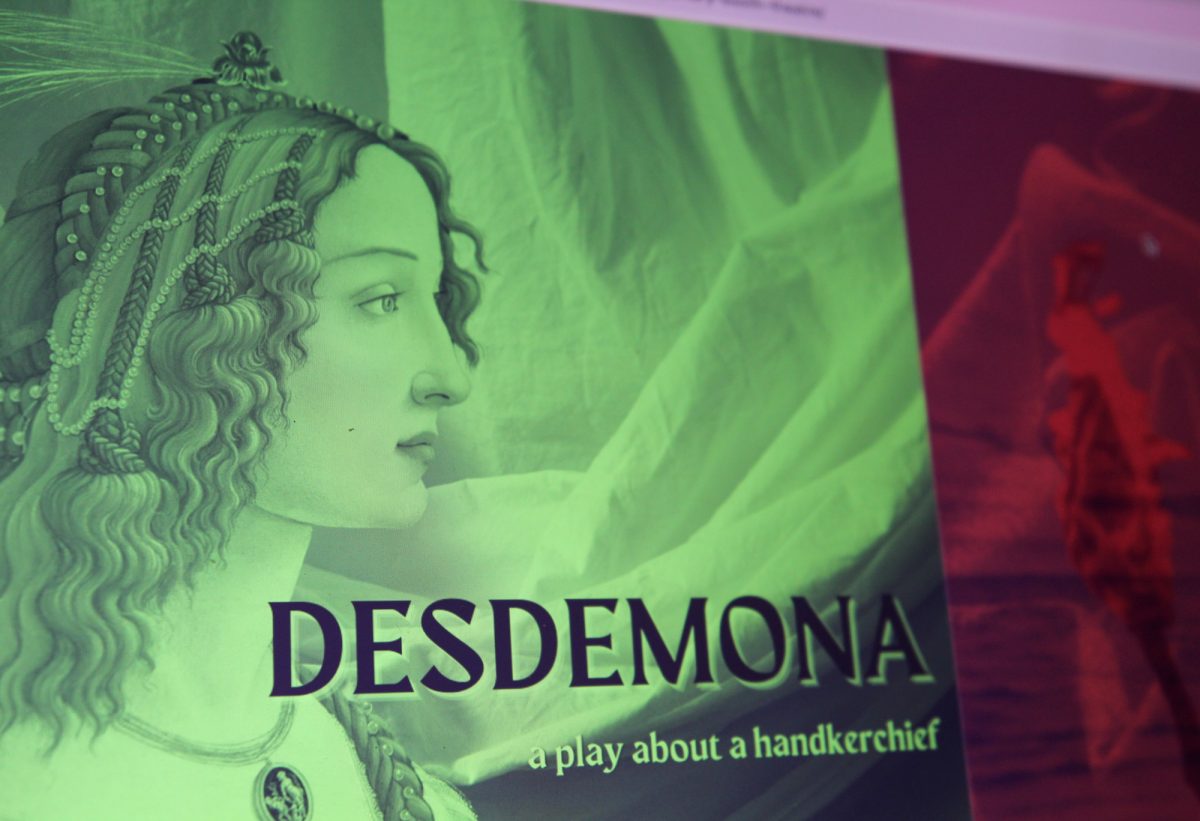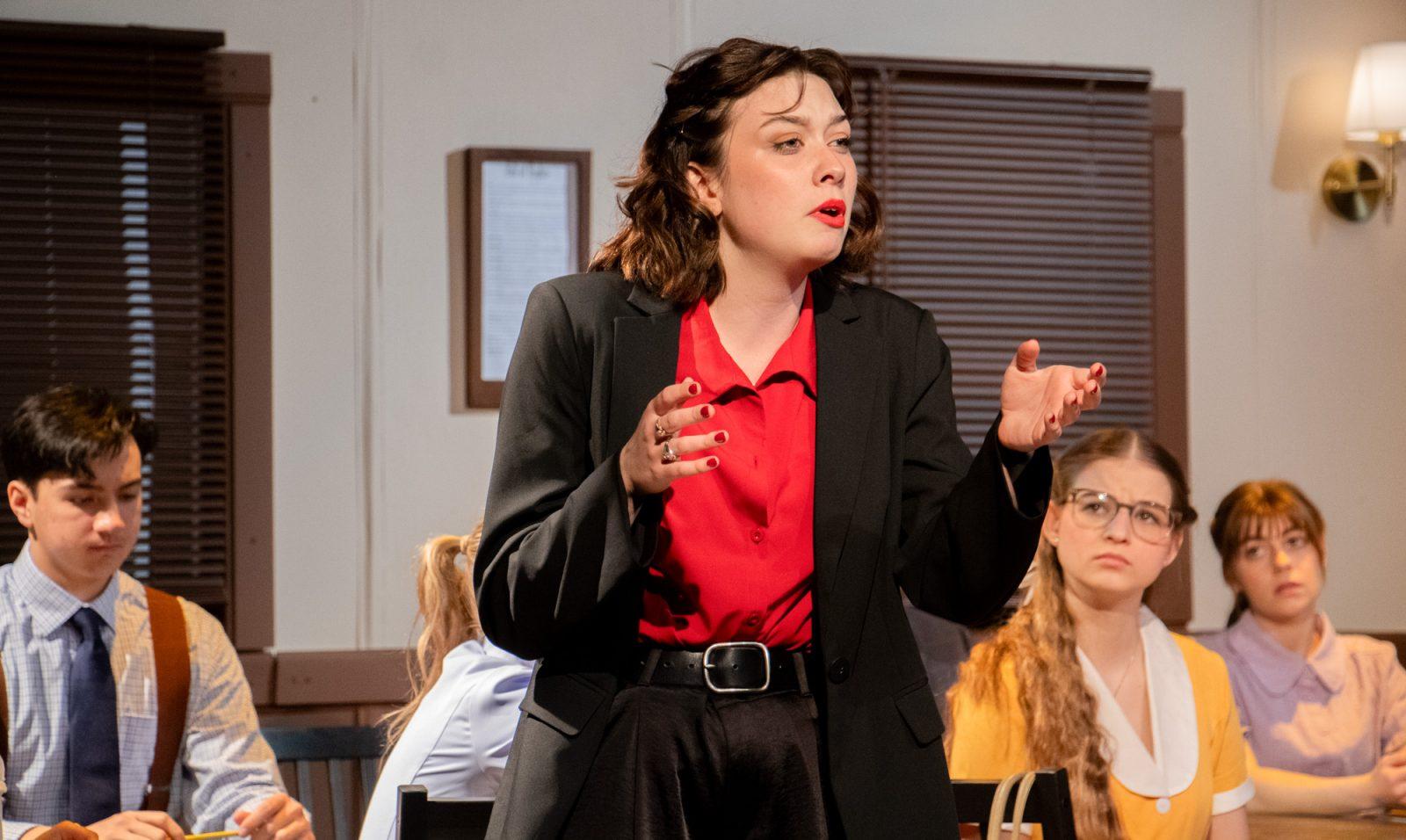I’m not sure what I was expecting when I walked into Boston University’s College of Fine Arts Concert Hall on Saturday night, but it certainly wasn’t a full orchestra already onstage with 20 minutes to curtain and the autumnal glow of electric candles illuminating the space.

As part of their 2022 Fringe Festival, the CFA School of Music: Opera Institute and School of Theatre presented “Our Town,” a three-act opera based on the play by Thornton Wilder of the same name.
“Our Town” follows the residents of a fictional American small town called Grover’s Corners through their daily lives and struggles.
Act I opens with the Stage Manager — impressively played by Andrew Bearden Brown — introducing the audience to the town, including residents George Gibbs (Marcus Huber), Emily Webb (Erin Hogan, at the Saturday performance) and their respective parents. In Act II, George and Emily get married and express many of their anxieties about doing so.
The first two acts played without an intermission, and by the time the lights came up, I was impressed by the stamina of the performers and musicians. Brown made for a compelling and dynamic narrator with clear vocal prowess. Margaret Matejcek (Mrs. Webb at the Saturday performance) and Jacob O’Shea (Dr. Gibbs) handled the challenging score masterfully.
The production shined in its lighting design by John Holmes. Act I was illuminated by a candle-like glow, almost reflective of the simple ways of Grover’s Corner, and Act II departed into a colder, bluer hue, which mirrored Emily and George’s anxiety.
With a minimal set, featuring just a few chairs and ladders, the staging remained precise. By having the orchestra on the stage with the performers, the production created a full sound that was clearly focused on the sweeping score. That said, the occasional use of text on screens behind the orchestra to insert additional narrative details was largely distracting from the storytelling happening onstage.
While the story of “Our Town” is critically acclaimed — after all, it won the 1938 Pulitzer Prize for Drama — I couldn’t help but feel the first two acts were a bit too 1938. The characters’ arcs felt oversimplified, and certain scenes featuring dated comments about women’s need to be “pretty” and the town’s fear of industrialization did not play well to the 2022 audience.
However, upon reaching Act III, it became clear why “Our Town” is a classic.
Set nine years after the end of Act II, the Stage Manager offers a glimpse into the afterlife. Simon Stimson (played by Christopher Ellars) committed suicide, which opens a conversation surrounding his mental health and alcoholism that is rather ahead of “Our Town”’s time. The main character Emily passed away from childbirth.
Emily travels back in time to her 13th birthday, reliving the day with her newfound perspective, and she becomes emotionally devastated when she realizes the living fail to appreciate the little things in life.
This act was where Hogan truly blew me away. Not only was her voice impressive, but she proved herself an impressive actress with precision in her storytelling.
Act III also departed from the other acts — and traditional productions of the play — in its use of props. In Acts I and II, the actors mimed actions in lieu of traditional props, which often became hazy and distracting, but in Act III, we see Emily’s birthday cake and the coffee pot her mother used. This clarity in the staging furthers Emily’s realization that when she was alive, she failed to appreciate the simple joys that were right in front of her — a theme that modern audiences can, and should, resonate with.
While much of the plot did not age well, the opera was rife with impressive performers and engaging directorial choices, making it a joy for all those in the audience.





























































































































